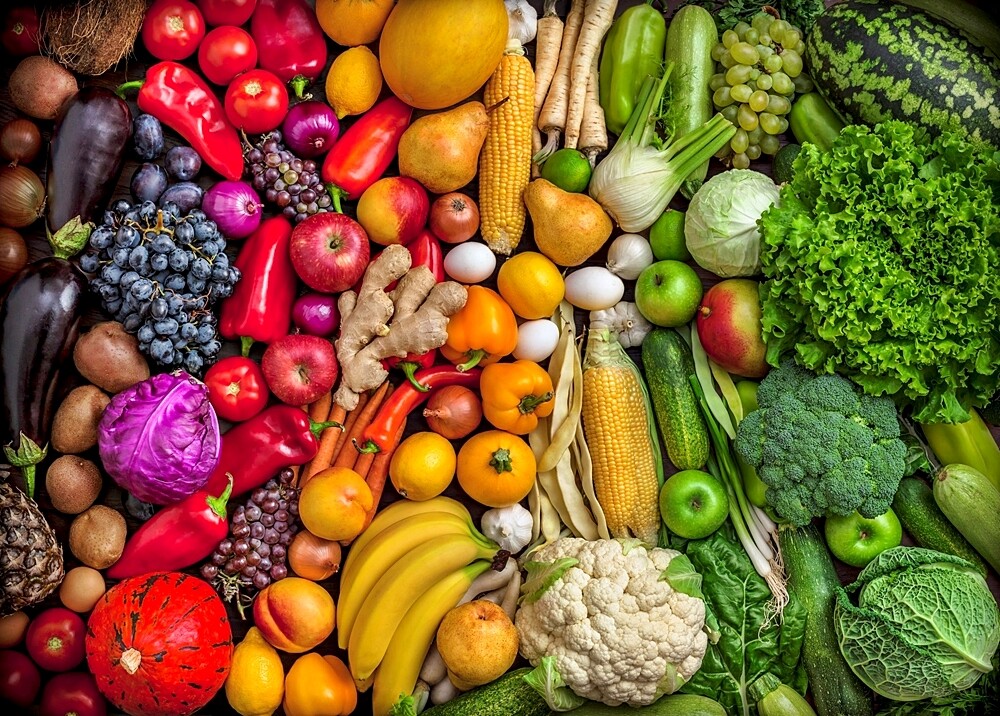You want to eat healthier, but are afraid to spend more money on organic products? We have 10 reasons for you, which will surely convince you.
1. There is good in it
For a long time, it was assumed that organic products had, above all, less bad in them than conventional products. But now there are studies that prove that individual organic products actually contain more vitamins and nutrients than conventional products.
Organic fruit and vegetables, for example, are given considerably more time to ripen by organic farmers. As a result, they get less water, taste more intense and have more time to form secondary plant substances, fibres and vitamins. Organic milk also contains more healthy omega-3 fatty acids than conventionally produced milk. These are particularly good for the cardiovascular system. The reason for this is the large amount of fresh grass and hay that cows are fed in organic farming.
2. Incomparable taste
Those who are honest must agree with us: Organic fruit and vegetables just taste better. This is because the original, pure taste is not distorted by additives. In the beginning the taste has to change because we are used to flavour enhancers and co. But at some point the sense of taste will become finer – and the more intense taste will blow you away!
3. A clear conscience
Eating organic products is not only good for yourself (because you eat less unhealthy food), but also for animals and the environment. Organic labels place high demands on animal husbandry and organic farming. In this way, animal welfare is to be made possible and the soil, as the greatest asset, is to be protected.
You pay a little more, especially for meat, but if you focus on quality instead of quantity and rarely but on good meat, you don’t have a guilty conscience. And there is really no shortage of vegetarian alternatives in the organic segment.
4. Fair conditions for all
But not only the animals and the soil benefit from buying organic products. The producers themselves also benefit. Because they focus on class instead of mass: If you are allowed to keep a maximum of 10 fattening pigs per hectare and year and only 2 dairy cows per hectare due to the strict organic regulations, you will end up having to charge more money for your products, but you will be better able to act in harmony with nature.
So with every organic product you buy, you give the producers more security that they can make the switch from conventional production to organic production. And everyone benefits from this. Tip: It is best to buy organic food from producers in your region.
5. Free of genetic engineering
The European state organic label is mandatory for all pre-packaged, organically produced food – and it guarantees that the products contain a maximum of 0.9% genetically modified material.
Products bearing the German state seal must not be produced with or through genetically modified organisms, and genetically modified animal feed is absolutely forbidden in the associations’ private organic seals. This is really good news for everyone who wants to avoid genetically manipulated foods.
6. Antibiotics free
Meat labelled with the German state organic seal must have been produced with organically produced feed without the addition of antibiotics and performance enhancers. In general, antibiotics are largely prohibited in organic animal husbandry. They may only be used in very few exceptional cases. If very strict limit values are exceeded, the meat may only be sold as conventional goods and may no longer be labelled with the organic seal.
7. Pesticide-free
Did you know that there are a lot of pesticide residues on conventional products that easily get into our diet? Namely 0.36 milligrams per kilogram. That’s still far below the legally permitted amount, but it’s not really that tasty, is it? In addition, there are up to 400 different additives, preservatives, sweeteners and artificial colorants. In other words, considerably more chemistry than we actually want to have on our plates.
8. Clean climate
This is a clean thing: the production of organic food emits significantly less harmful greenhouse gases than conventional production. This is partly due to the fact that nitrogen fertilizers are not used in the cultivation of organic fruit and vegetables. And: If the soil is protected thanks to varied crop rotations, it binds carbondioxide much better than leached soil.
9. More sustainability
Organic farming and sustainability – these two things go hand in hand. Because only those who work in an environmentally friendly and resource-saving manner can be sure that they will be able to produce naturally and in the long term. Because nature does not forgive brutal exploitation so quickly and must always recover before anything can be gained from it. Crop rotation in the fields is just one of many important, sustainable approaches. Care is taken to ensure that the field is used for different plants one after the other. The nutrients that the first plant has extracted from the soil are returned by the second plant.
And if you are careful to buy organic products from your region, you are also doing something to help local farmers switch to organic, which in turn shortens transport distances and protects the environment.
10. Becoming a role model
When you buy organic products, you are setting a good example. Not only for your own children, who grow up with organic products and thus consume less additives and colourings, artificial aromas and flavour enhancers than others, but also for the other people around you. For this you do not have to try to missionize them with long sermons. All you have to do is serve them a delicious fresh salad made from organic ingredients and let them experience the original taste. Sometimes understanding goes through the stomach. In this sense: Bon appetit!

